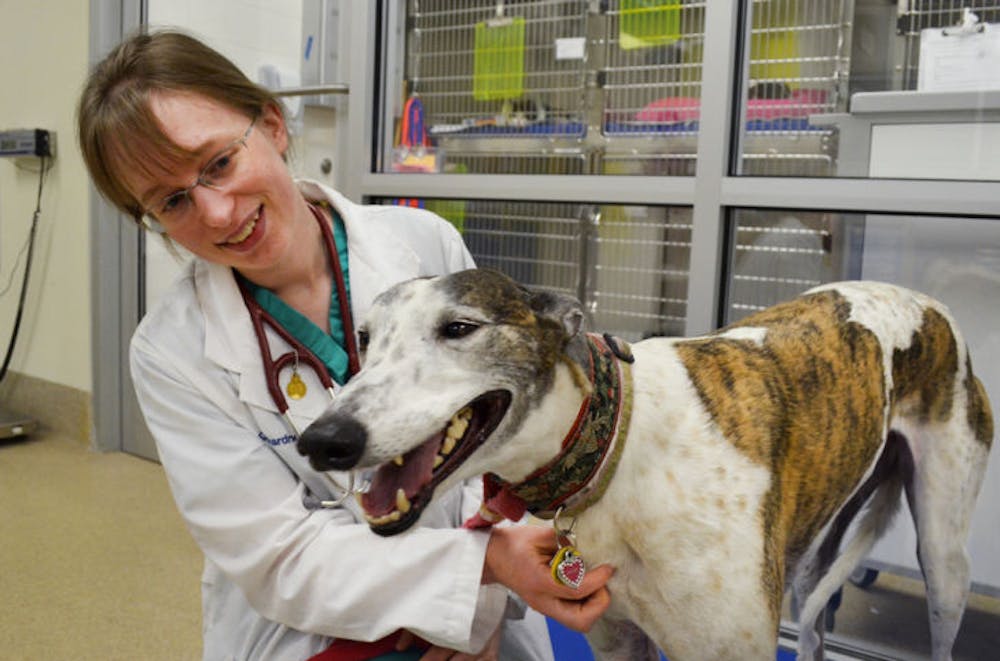Chemotherapy has left Anora virtually unaffected, but it isn’t a surprise.
Jan and Andy Hamilton’s greyhound Anora was diagnosed with lymphoma, a blood cancer, on Dec. 29. She started chemotherapy shortly thereafter.
Anora is one of many mammals that are treated in the CHOP program at UF’s Small Animal Hospital. CHOP is an acronym for the drugs prescribed in this regimen. The dogs receive the same drugs as humans but don’t suffer the often intense side effects that people do.
“Most dogs with lymphoma, you can’t tell the difference with a dog who has no cancer,” said 38-year-old Dr. Kelvin Kow, a UF assistant professor of oncology and associate service chief of the UF Small Animal Hospital. “Dogs don’t lose their hair generally. They don’t have the degree of nausea, vomiting and diarrhea that people get with chemotherapy.”
Eighty percent of dogs that go through chemotherapy have few to no side effects at all, whereas 80 to 90 percent of people get sick, Kow said. About 3,000 animals a year are treated in the CHOP program.
Andy Hamilton, 68, said Anora has had minimal side effects from chemotherapy.
The difference in treatment is in the dosage of the chemotherapy drugs. Dogs receive about half of the dosage that humans would, Kow said.
“If a patient has no quality of life, why do it?” Kow said. “Our mantra — one, two and three — is quality of life, quality of life, quality of life.”
The CHOP program includes 16 chemotherapy drug treatments over the span of 25 weeks, he said. Each treatment cost averages out to be about $300, which totals to about $4,500.
Anora’s life doesn’t have a price to them, Andy Hamilton said.
“She would have been dead by now had we not,” he said. “Her lymph nodes inside her shoulders would have been the size of golf balls.”
The CHOP program extends a dog’s life between a year and a year and a half. The dogs’ response rate, when the cancer goes into remission, is about 85 to 90 percent, Kow said. This is about the same response rate for humans.
Anora is currently in complete remission after having gone through half of her CHOP treatment.
“As long as she has the zest for life she has, she deserves it,” Andy Hamilton said.
Dr. Heather Gardner, a 29-year-old oncology intern at the University of Florida Small Animal Hospital, performs an exam on Anora, a greyhound with cancer.






